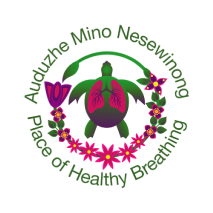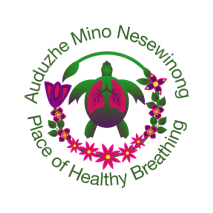Measles Q&A
I know, right? Thanks to vaccination efforts in the past, we had eradicated measles by 1998, but unfortunately, measles is back….In fact, there has been a rise in measles infections around the world, and there are confirmed cases in Ontario.
Because we worry about any virus or illness that may affect you and our communities
Measles is one of the most contagious viruses in the world, spreading by droplets from the nose, mouth, or throat or by touching contaminated surfaces.
The measles virus can linger in the area for as long as 2 hours after the infected person has left the area.
Symptoms of measles usually begin with a high fever, red and watery eyes, and a rash that usually starts with spots in the mouth and face and spreads to the rest of the body.
People who are exposed to measles can spread the virus 4 days before the rash starts.
Measles can cause ear infections, pneumonia, brain swelling, seizures, deafness, blindness, and even death. Vaccination is the only way to protect us.
Yes, it is very safe!
The measles vaccine is called MMR (measles, mumps, rubella) vaccine.
It is over 95% effective in preventing measles!
When you receive the MMR vaccine, you may have some redness and pain to the area where the vaccine was given, mild fever, mild rash, or joint pains.
Although these side effects can happen with the MMR vaccine, the benefit of the vaccine totally outweighs the risks!
Babies and children should be vaccinated with 2 doses of the vaccine (first dose after 12 months of age). Children must have the MMR vaccine or a valid exemption to attend school off-reserve.
If you were born BEFORE 1970 you likely had the measles virus. If you don’t remember having measles or don’t have documentation of receiving the vaccine, you should get the MMR vaccine now!
If you were born in 1970 or later, you should have received 1-2 doses of the MMR vaccine. If you only received 1 dose, or if you don’t know and can’t find out, it is important to receive the vaccine now.
The MMR vaccine is a weakened live vaccine, so some people who are severely immunocompromised, such as those with cancer, on chemotherapy, or with active tuberculosis, and pregnant people should not get the vaccine. If you’re unsure, speak to someone in your healthcare community that you trust.
If you have been exposed to measles or think you have symptoms of measles, please contact your healthcare team or public health and stay home!
And as always, we are here for the community. To talk with us or book a vaccine, please call us at 416-654-4184 or email auduzhe@nameres.org
Vaccine UPDATES ( COVID-19 / Flu-Shot / RSV )
We have important updates about COVID-19, Flu-Shot, and RSV vaccines.
COVID-19 Vaccine
We currently have most updated KP.2 COVID-19 vaccine that provides the greatest protection against the COVID-19 strains that are circulating.
– You need to wait 3 months between COVID-19 vaccine doses.
– If you have had a COVID-19 infection, you can receive this vaccine 6 months after the infection.
Influenza vaccine (flu shot)
We currently have 2024-2025 Influenza vaccines (flu shots).
RSV Vaccine
The respiratory syncytial virus (RSV) can cause cold like symptoms, however older adults may get severe illness.
– First Nations, Inuit, and Métis (FNIM) community members 60 years of age and older are eligible for the RSV vaccine.
– If you received the RSV vaccine in the past year, you do not need to receive it again this year.
– This vaccine can be administered with other vaccines such as the influenza (flu shot) and COVID-19 vaccines.

